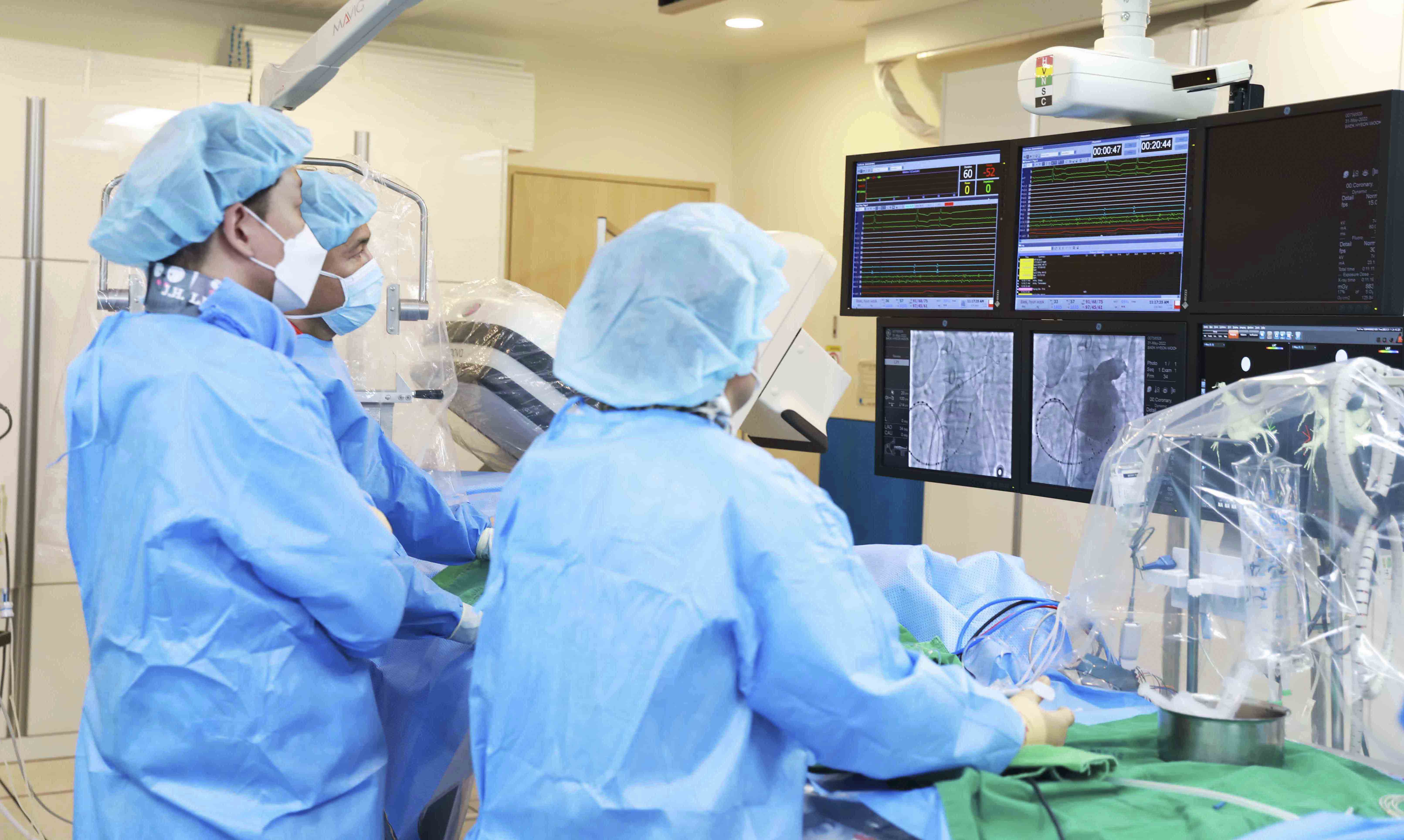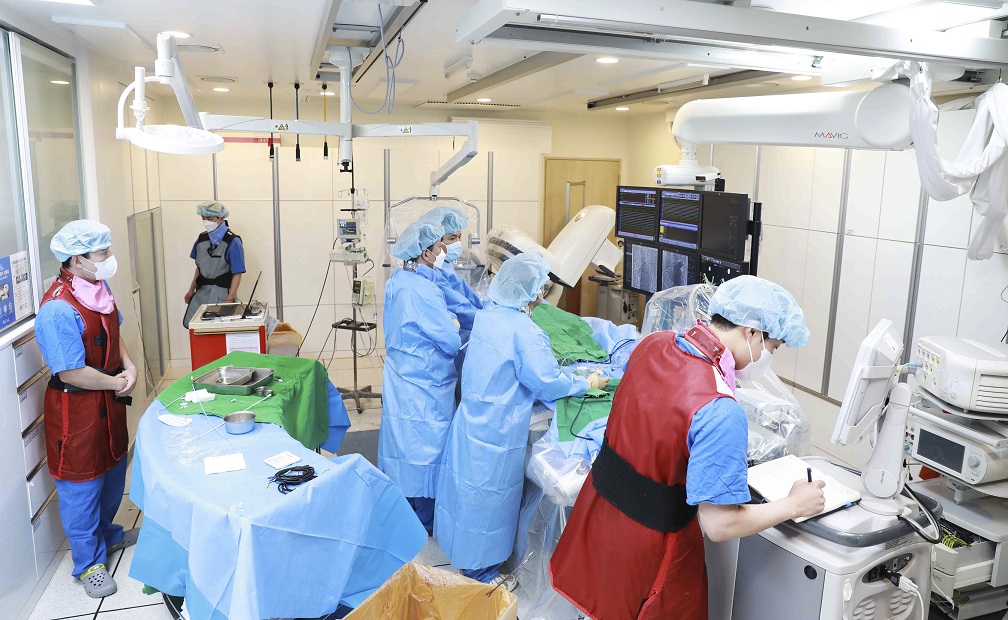[JUL. 2022] Myongji Hospital Becomes the First Hospital to Succeed in “Cryoballoon Ablation”
- Name 관리자
- Date 2022-07-27
Myongji Hospital Becomes the First Hospital in the Northwestern Gyeonggi Area to Succeed in “Cryoballoon Ablation”
Expected to reduce the duration of anesthesia and length of procedure, with greater treatment effectiveness for arrhythmia patients and less complications
Cryoballoon Ablation at the Cardiovascular Center of Myongji Hospital (Prof. Hwang Ui-seok, Department of Cardiology)
Myongji Hospital (President Kim Jin-goo) became the first hospital in the northwestern Gyeonggi area to implement and conduct cryoballoon ablation to treat atrial fibrillation, a type of arrhythmia.
Unlike the traditional high-frequency electrode resection, which uses high-frequency energy to electrically block the pulmonary vein that causes tachycardia, cryoballoon ablation rapidly freezes the entrance of the pulmonary vein at minus 40 to 50 degrees Celsius.
Cryoballon ablation significantly reduces the duration of anesthesia and length of procedure compared to high-frequency electrode resection. It also has an advantage of greatly reducing complications such as thrombosis, heart perforation, and pulmonary vein stenosis as it minimizes tissue damage around lesions. Furthermore, it has been shown to have a therapeutic effect in 80% of patients with early seizure atrial fibrillation.
Professors Hwang Ui-seok and Lee Jae-hyuk and their team at the hospital’s Cardiovascular Center recently performed and successfully conducted the cryoballoon ablation procedure instead of the conventional high-frequency electrode resection on a male patient in his sixties diagnosed with atrial fibrillation.
Atrial fibrillation occurs when there are abnormal electrical signals in the atrium of the heart, causing it to beat fast and irregularly. It is the most common type of arrhythmia. It mainly appears in patients with high blood pressure, heart failure, and valve disease. In particular, patients with atrial fibrillation have a five times higher risk of stroke and three times higher risk of heart failure than healthy people, which makes early diagnosis and treatment critical.
Professor Hwang Ui-seok from the Department of Cardiology at Myongji Hospital stated, “Up to now, high-frequency electrode resection, which destroys tissues by applying high-frequency electrical energy to pulmonary veins that cause arrhythmia, was considered to be the normal course of treatment in these circumstances.” He added, “However, recently, cryoballoon ablation is much more preferred as it reduces the duration of the procedure, while maximizing treatment effectiveness and reducing complications.”
Myongji Hospital has a cardiovascular center that boasts the region’s only arrhythmia center, a heart surgery center that conducts heart surgeries and transplants, a multidisciplinary heart rehabilitation center, an emergency room for patients with heart-related conditions, and a separate ward for these patients. The hospital has emerged as the center of multidisciplinary heart disease treatment in Korea.
HOMEPAGE: http://eng.mjh.or.kr/

